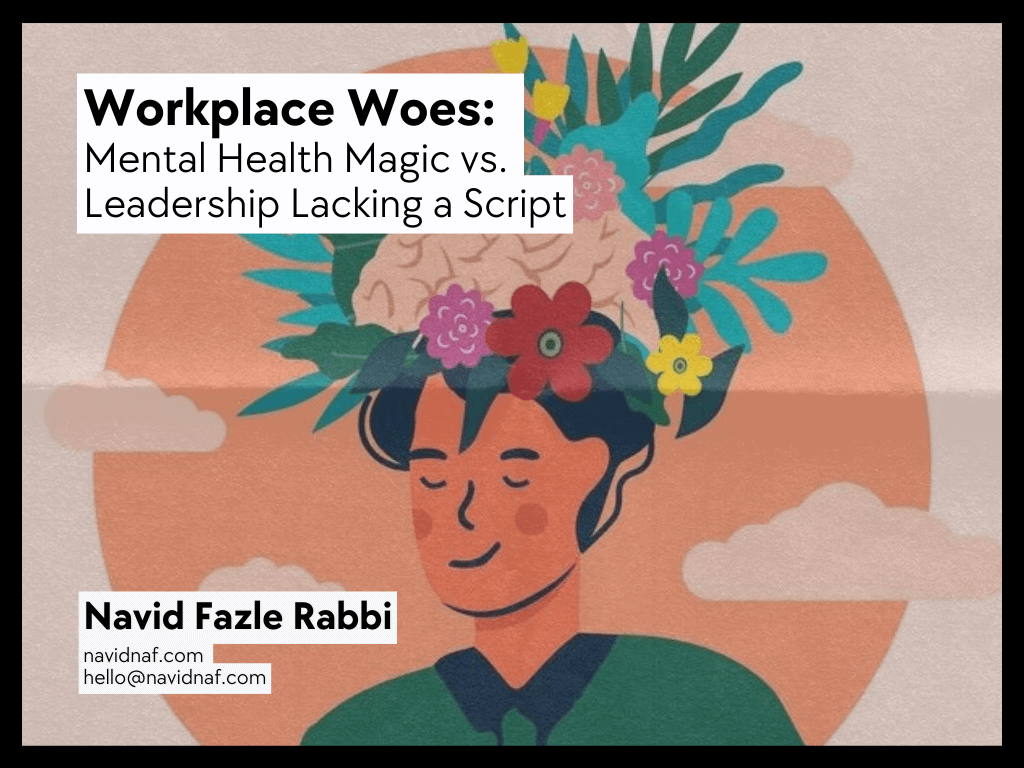It is hard to say enough about how important mental health is in today’s fast-paced and competitive workplace. Beyond the numbers of productivity and efficiency, the most important thing for a good work setting is the mental health of the people who work there. In this situation, leadership that isn’t based in reality, often caused by people who haven’t entirely accepted themselves, can be especially harmful. This article discusses the connection between mental health and leadership and shows what can go wrong with leaders who try to show off instead of being themselves.
When someone leads without any foundation, they may seem solid and capable, but looking more closely, you can see that they don’t know themselves. People affected by this leadership style often try to copy the traits they see as successful in others, without taking into account their strengths and flaws. People who act this way do so because they are uncomfortable with who they are, making them create a character that is separate from who they are.
The babble effect, like a well-planned performance that falls apart when you look at it more closely, shows how important it is to be a genuine and self-aware leader. To stop this “babble effect,” leaders must face their fears, accept who they are, and build a basis on fundamental understanding. That is the only way for leadership to make sense without the jarring babble that comes with leadership with no basis.
The Perils of Inauthentic Leadership
- Lack of Emotional Intelligence: Leaders without real-world experience often have trouble with emotional intelligence because they care more about putting on a perfect face than knowing and controlling their feelings. This flaw can make the workplace unpleasant, making it harder for team members to communicate and work together.
- Inability to Foster Genuine Connections: Meaningful relationships, trust, and understanding make authentic leadership work. Baseless leaders, on the other hand, may find it hard to make these connections because they are too focused on projecting the right image and not enough on building genuine relationships with their team.
- Increased Stress and Burnout: The stress and burnout from keeping up a front of being perfect can be awful for leaders with no fundamental skills. Constantly trying to improve an unrealistic view of oneself can be bad for mental health and make it harder to make decisions and do a good job generally.
- Resistance to Change: True leadership is open to vulnerability and knows people need to keep growing. Erroneous leaders, on the other hand, might not want change or feedback because they think it will show where they are weak. This reluctance can make it harder for an organization to change and develop new ideas.
The Importance of Self-Acceptance
Self-acceptance is essential to authentic leadership. Leaders with self-acceptance are more capable of leading with empathy, humility, and resilience. Recognizing both talents and faults creates a comfortable atmosphere for individuals to be themselves, enhancing the organization’s mental well-being.
Encouraging Mental Health in the Workplace
- Promoting a Culture of Openness: Cultivate an environment where employees feel comfortable discussing mental health without fear of judgment. Encourage leaders to share their struggles and successes, fostering a culture of openness and support.
- Providing Mental Health Resources: Set up mental health resources and support programs to give your workers the tools to prioritize their well-being. Provide classes, counseling, and other programs that help people find a good mix between work and life.
- Leadership Training on Authenticity: Give leadership training that stresses the importance of honesty and knowing yourself. Give leaders the tools to be open and honest with those who follow them, creating a positive and welcoming work environment.
Mental health is crucial to maintaining a productive and pleasant atmosphere in the constantly changing modern workplace. Organizations may cultivate honest, compassionate, and influential leaders who prioritize mental well-being by dismantling baseless leadership structures and encouraging self-acceptance.




